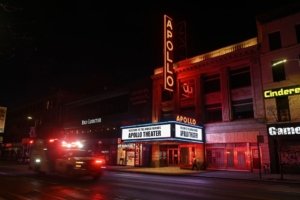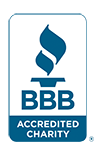https://www.bloomberg.com/opinion/articles/2020-06-15/coronavirus-ppp-isn-t-enough-for-black-owned-businesses
Timothy L. O’Brien is a senior columnist for Bloomberg Opinion.
Federal small-business aid, even if it gets through, is not a long-term solution to what ails low-income communities of color.

Many small businesses in neighborhoods like Harlem were ineligible for assistance. Photographer: Dia Dipasupil/Getty Images
During Senate testimony on May 19, Treasury Secretary Steven Mnuchin assured legislators he had been transparent about how he was spending taxpayer dollars to support small businesses struggling to survive the coronavirus pandemic — despite controversies that the well connected were often first in line for funding. Last Wednesday, Mnuchin returned to the Senate and reversed himself. He said he had decided not to release the names of recipients of Paycheck Protection Program money or how much they’ve received.
At the same hearing last week, Jovita Carranza, the director of the Small Business Administration, said that 45% of PPP funds went to businesses in “low-income areas.” It’s not clear how Carranza is defining “low-income areas” or whether what she said is even true because, again, she and Mnuchin aren’t disclosing enough public information to gauge their programs’ effectiveness.
Early last month, the SBA’s inspector general released a report noting that of $659 billion that Congress has approved for PPP loans — which are meant to allow small businesses to keep workers on their payrolls instead of firing or furloughing them — about $425.8 billion had been disbursed. The inspector general pointed out that the legislation authorizing PPP funding mandated that the SBA prioritize lending to rural, minority and women-owned businesses, but — surprise, surprise — that didn’t appear to have happened.
Why not? Because the SBA decided not to order private banks charged with disbursing the money to do so, according to the inspector general. And, his report noted, “because SBA did not require demographic data to identify PPP borrowers in underserved markets, it is unlikely that SBA will be able to determine the loan volume to the intended prioritized markets.”
Denise Ford Sawadogo, an African-American entrepreneur who founded the Montclair Brewery with her husband, Leo Sawadogo, in Montclair, N.J., almost two years ago knows what it’s like to be in an “intended prioritized market” — and to be passed over. She applied for PPP funds during the first round of loans approved on March 27 and didn’t receive any. “All those big connected companies got it,” she told me. She managed to snare funds in the second round approved on April 24, and it’s helped her retain the four part-time and one full-time workers she and her husband employ. Without PPP, it would have been a “real struggle” to keep her doors open, she said.
Ford Sawadogo said her local government’s red tape has made it hard for her to maneuver through the crisis. Town planning rules have slowed down her ability to serve people on the sidewalk and other areas outside her small brewery, for example. “I was like, ‘Guys don’t you know this is Covid-19 and we’ve been stripped bare,’” she said. “They act like it’s business as usual.”
But, she allowed, “we have beer, and everyone loves beer.” She also pointed out that her master’s degree in business made her comfortable navigating the PPP application process, an advantage many of her counterparts don’t enjoy. She also has employees. “Most black-owned small businesses don’t have payroll,” she said. The PPP requires businesses to have employees, so sole proprietorships such as black-owned beauty salons were shut out. Ford Sawadogo is also operating in an affluent suburb. Across the Hudson River in New York, the challenges are even greater for black-owned businesses in low-income neighborhoods.
“There definitely have been black-owned businesses that have difficulty getting PPP money because they lack the qualifications,” said Regina Smith, executive director of the Harlem Business Alliance, an advisory organization for local African-American entrepreneurs. “They either don’t have enough employees or often don’t have relationships with banks.”
The White House and Treasury Department were broadly criticized for not making funds more accessible to small businesses owned by people of color after the first PPP round ran dry, and they convened meetings to try to avoid the same problems after the second round was approved. The government relaxed some of the requirements for how the funds could be used and made other adjustments so more businesses could qualify. PPP funding was also channeled to more nonbank financial institutions in communities of color. It had an effect.
Pat Stevenson, a former advertising executive, has been running a group of community newspapers in Harlem, Brooklyn, Queens and the Bronx through a holding company, Harlem Community Newspapers Inc., for 25 years. She also conducts networking events and publishes a newsletter for African-American women who are entrepreneurs. She said a number of black-owned businesses that she advised were able to get PPP funding during the second round after coming up empty the first time.
A large swath of her neighborhood businesses was still ineligible for PPP, however. “There are a lot of people in our community like me. Restaurant owners and beauty shop owners who don’t have payroll,” she said. “There are more than 100 of them. But they have rent and they have other overhead costs and they can’t get PPP.”
Black-owned small businesses have also been more heavily ravaged by the pandemic. A recent report by the National Bureau of Economic Research found that the total number of black-owned businesses in the U.S. fell 41%, from 1.1 million in February to 640,000 in April, because of fallout from the coronavirus. The report, which relied on census data, said that about 22% of all small businesses nationally closed during that period. (Small-business closings in the Latino, Asian, and female-owned small business community were about 32%, 36% and 25%, respectively, according to the NBER.)
This exacerbated problems that already existed for black entrepreneurs. According to the Center for Responsible Lending, a nonprofit advocacy group, about 46% of white-owned businesses were able to get credit from a bank over the last five years — compared with just 23% for black-owned businesses. “We have some businesses that have been open for decades and can’t get revolving lines of credit,” said Smith, of the Harlem Business Alliance. “It’s very systemic, and it holds our businesses back.”
All of this raises a broader truth about PPP: It’s not a long-term solution to what ails low-income communities of color (or, for that matter, low-income rural communities that are predominantly white).
To be sure, the national protests following the death of George Floyd at the hands of a white police officer in Minneapolis has laid bare how severely — and uniquely — racism and abusive, oppressive policing have held back communities of color for generations. But for real, long-term change to arrive, which the coronavirus pandemic and the Floyd protests have also revealed, neighborhoods in need will also require better housing, health care, transportation, education and jobs. And that will demand sustained funding that doesn’t take the shape of emergency stopgaps like PPP.
“We know for a fact that that concentrated poverty and concentrated institutional decline have a profound impact on a person’s life outcomes. We have to talk about community revitalization and economic growth,” said John Lettieri, the president and chief executive of the Economic Innovation Group, a bipartisan research group that focuses on entrepreneurship and economic development. “The scale of the resources we’ve brought to this battle have been significantly less than the size of the problem.”
A pair of research reports EIG recently published are well worth reading. Relying on granular, community-based data going back decades, the reports detail the extent to which “persistent geographic inequality defined the record-long economic expansion that has just come to an end.” The reports give context and texture to the disturbing growth of high-poverty metropolitan neighborhoods between 1980 and 2018, and illustrate how those same entrenched neighborhoods have become barriers to economic development and personal liberation within major cities.
Persistent poverty, the reports note, highlights the need for “place-focused targeting” as policy makers continue to support small and new businesses while shielding communities from continued economic hardship. Continuing to ignore metropolitan neighborhoods that didn’t benefit from decades of economic growth in the U.S. “in the current downturn and through the next recovery would be public policy malpractice,” the reports observe.
This has already surfaced in the data. While the White House helped lead a round of huzzahs that greeted improved jobs numbers in May — a bump that was most likely due in part to the benefits of PPP funding that went predominantly to white-owned businesses — it managed to ignore the fact that the jobs landscape had actually worsened for black workers in the same period. It would help matters if Mnuchin and others overseeing future aid bear the black community, and transparency, in mind as policy discussions continue. If they don’t, they shouldn’t expect the anger and resentment currently fueling mass protests across the country to simply evaporate.
Regina Smith, and her neighbors in Harlem, concur.
“We really need black-owned institutions to work with black businesses if this is going to be meaningful,” she said. “I’m sick of having these conversations about inclusion. How many blacks are working for tech companies? You can’t have social justice if you don’t have economic justice.”
To contact the author of this story:
Timothy L. O’Brien at tobrien46@bloomberg.net
To contact the editor responsible for this story:
Daniel Niemi at dniemi1@bloomberg.net






